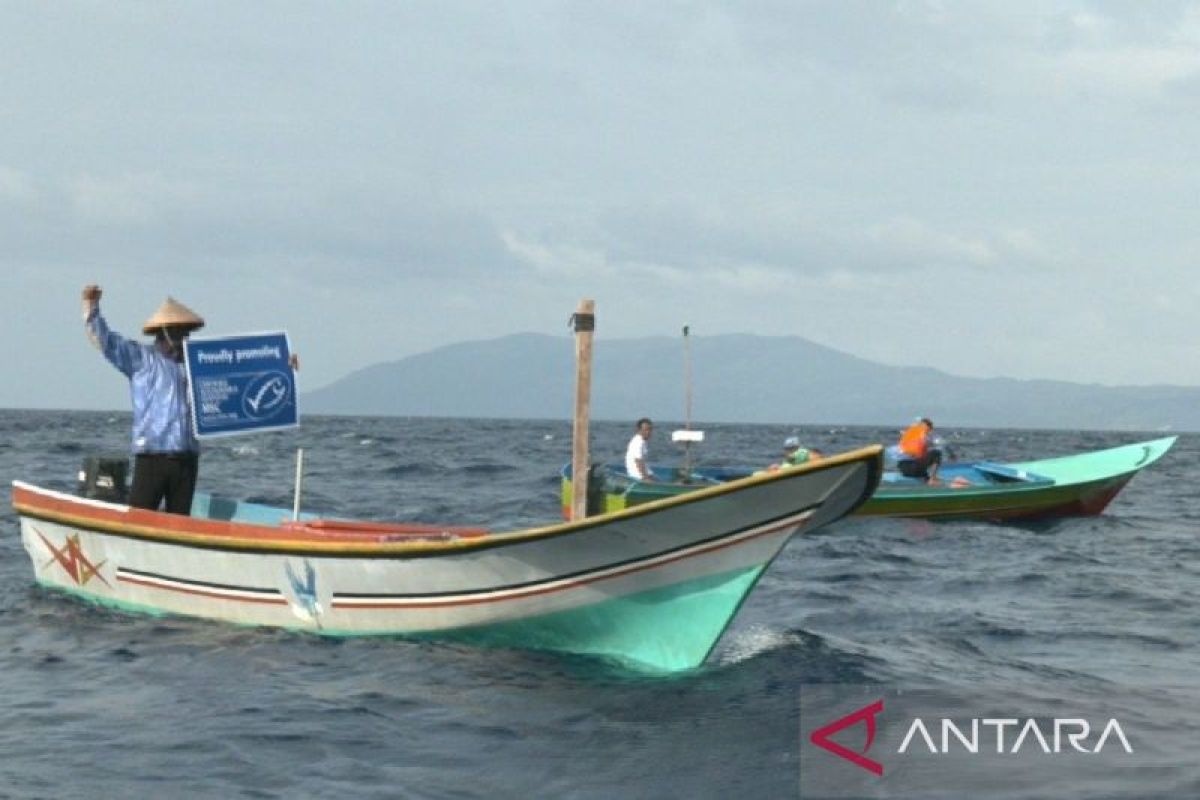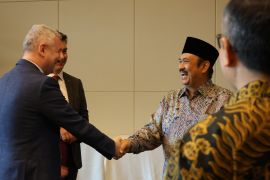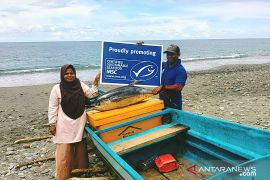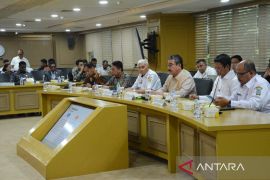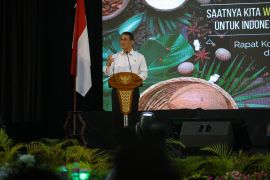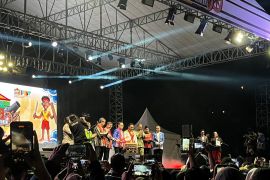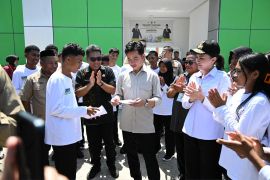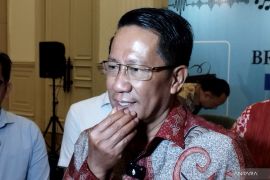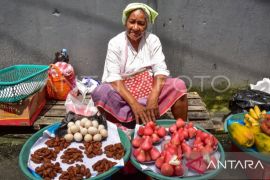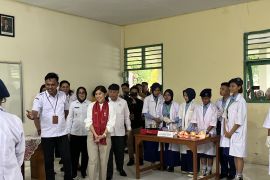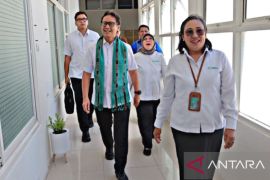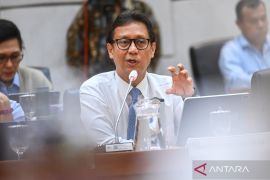This catch limit-based policy, which is mainly directed at businesspersons, is not only indispensable for the nation's fish conservation but also for the sustainability of its food security and national development.
To this end, the government continues to manage Indonesia's fishing conditions by issuing regulations to prevent harmful fishing practices in this world's largest archipelagic country.
The Marine and Fisheries Ministerial Regulation No. 50 of 2017, for instance, regulates potency estimates, total allowable catch (TAC), and utilization rate of marine fishery resources in the fisheries management areas (FMAs).
The 2017 ministerial regulation was then strengthened by Marine and Fisheries Ministerial Regulation No. 19 of 2022 on potency estimates, TAC, and utilization rate of marine fishery resources in FMAs.
To a certain extent, sustainable fishing has indeed been practiced by local fishermen. There is even a hamlet in the eastern Indonesian province of Maluku whose fishermen have gained international reputation.
The hamlet is called Tanjung Air Panas in Tulehu Village, Central Maluku District.
The Tanjung Air Panas handline fishermen have been certified by the Marine Stewardship Council (MSC) after being able to meet its fisheries standard.
In January this year, they received the MSC certification for three consecutive years owing to the Indonesian Pole and Line and Handline Association's (AP2HI's) accompaniment program.
The success story of these handline fishermen, who go fishing by using one or two GT boats, began in early 2021, as their hard work along with the AP2HI had led them to obtain the MSC Certification for tuna fishing.
The certified fishermen benefit greatly in terms of increases in export demands and better selling prices for seafood products sold globally, MSC's Commercial Communication Officer, Usmawati Anggita Sakti, stated.
They also benefit from partnering enterprises' awareness of preserving the oceans for future generations and fulfilling the rights, welfare, health, and safety of several people, including fishermen and employees.
The MSC is an international non-profit organization that determines science-based and internationally-recognized standards for sustainable fishing and traceability of seafood products from hook to plate, she remarked.
Hence, the blue MSC labels on fishery products guarantee that they are originally obtained from a natural catch that has independently been certified by applying science-based standards, Sakti added.
Tuna export
PT Aneka Sumber Tata Bahari (ASTB), a fishery industry based in Tulehu Village, revealed that it has been able to export 125 tons of yellowfin tuna to the United States annually.
According to ASTB Director Kuntoro Kusno, the whole tuna fish that his company exports had been obtained from some 600 small-scale fishermen, who have received the MSC certification.
The global markets for fishery products rely on ecolabelling, one of which is certified by the MSC. As a result, the non-blue MSC-labelled fishery products of PT ASTB would only be sold domestically, he remarked.
Kusno admitted that at the onset, it was not easy to obtain the MSC certification, as his company should accompany its partnering fishermen to enable them to meet the sustainable fishing standard.
He then urged the partnering fishermen, using the pole and line fishing gear for catching yellowfin tuna, to keep the "one man, one hook, and one fish" motto in mind.
Bearing in mind the motto and applying it are necessary to make them aware of an obligation that they must only catch the big and hungry tunas, he stressed.
As the fishermen's partnering company, PT ASTB is also required by the MSC certification to declare the names of fishermen who catch exported tunas and FMAs where the tunas are caught, he remarked.
With passage of time, the fishermen comprehend the need for sustainable fishing standard for benefiting them and the partnering company.
Kusno said PT ASTB purchases the MSC-standardized yellowfin tuna from its MSC-certified fishermen at Rp85 thousand per kilogram (around US$5.39). The price is Rp10 thousand (US$0.63) higher than that of the non-MSC standardized tuna.
Currently, some 1,500 fishermen collaborate with PT ASTB. Out of that figure, only 40 percent have been certified by MSC. These certified fishermen operate in the FMA 714 that covers the Tolo Bay waters and Banda Sea.
The remaining 60 percent, or 900 fishermen, who operate in the FMA 715, which covers the Tomini Bay waters, Maluku Sea, Halmahera Sea, Seram Sea, and Berau Bay waters, have yet to get certified, he pointed out.
Premium price and air freight
Due to the fact that only certified fishermen could enjoy the premium prices of the sold yellowfin tuna at PT ASTB, he said he continued to encourage those operating in the FMA 715 to get certified soon.
To this end, Kusno said he encouraged those operating in the FMA 715, who are currently in the process of meeting the sustainable fishing standard, to be able to receive the MSC certification in February 2024.
Meanwhile, the Maluku Marine and Fisheries Office (DKP) continues to help local fish exporters expand their markets. One of the breakthroughs is pushing a direct air freight from Ambon, Maluku, to Narita, Japan.
The air freight program for Maluku's fish exporters to Japan has been made effective since the end of January 2024 as a follow-up to the memorandum of understanding that the DKP recently signed with a partnering airline, Rusdi Makatita stated from the DKP-Maluku Office.
The air freight program is expected to help the province's fishery industries maintain the quality of their products, as the transportation time could be cut in comparison with that of the sea freight services, he stated.
The local fishery industries could hopefully benefit significantly from the availability of the air cargo service that the government has facilitated, Makatita stated. (INE)
EDITED BY INE
Related news: Turning the tide toward sustainable fishing in Central Maluku
Related news: Setting example for sustainable fishing practices
Related news: Indonesia negotiates for more quota on bluefin tuna catch
Editor: Atman Ahdiat
Copyright © ANTARA 2024
